Criteria: Impact Projects
Data Source: American Forest Foundation
Last Updated: February 2021
Summary
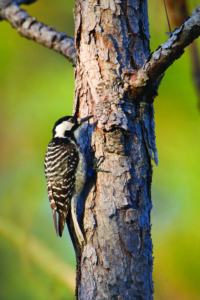
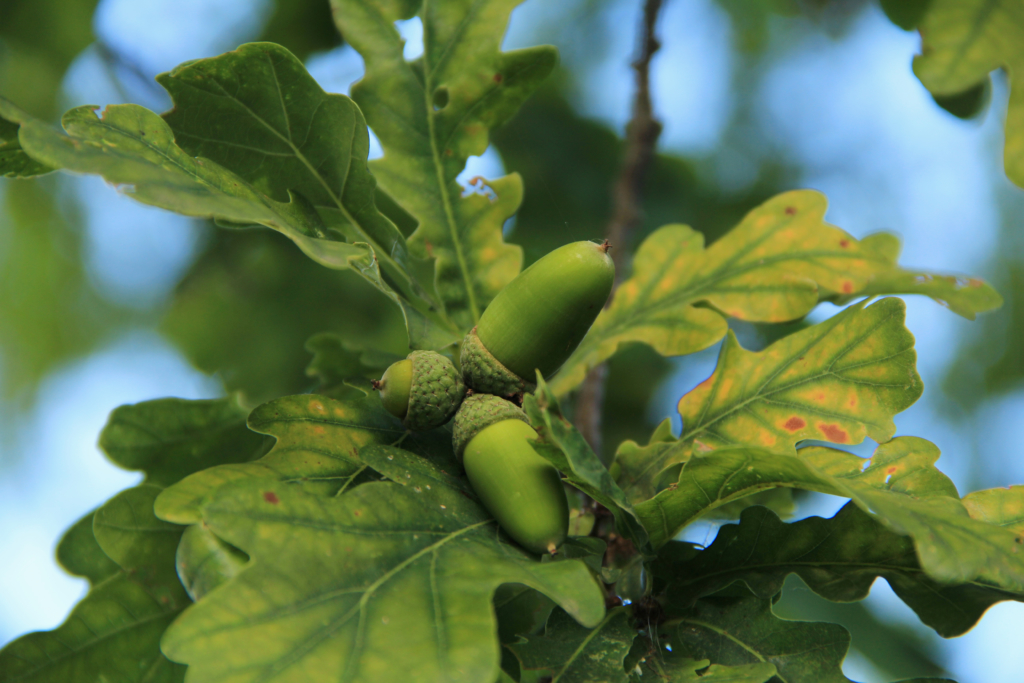
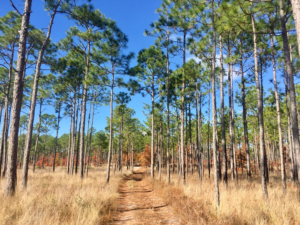
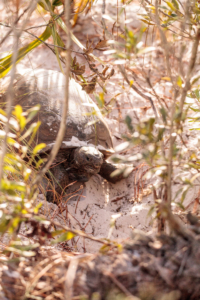
Current Available Projects
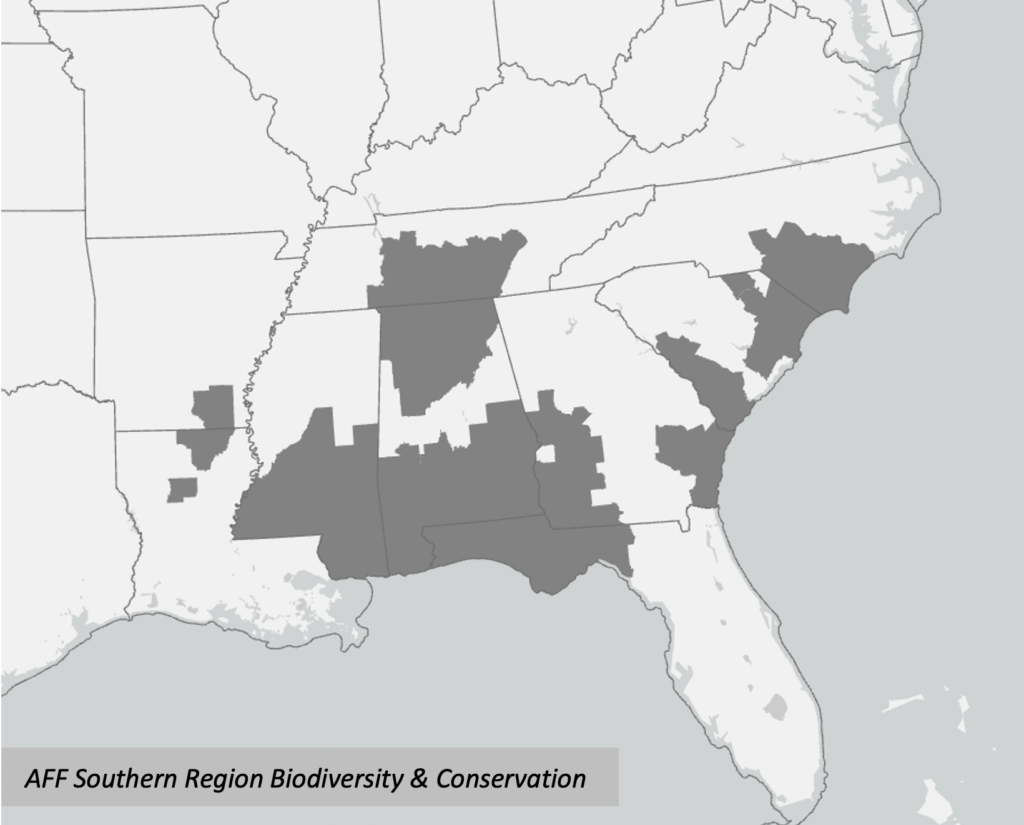
Protecting At-Risk Wildlife Habitat on Family Forests in the South
The South’s forests rank at the top in terms of biodiversity and the number of wildlife species. But today, wildlife is under pressure due to years of conversion of forests to non-forest uses, (like strip malls and community expansion), to fragmented waterways, natural fire suppression, and an influx of invasive species. In fact, there are more than 500 at-risk wildlife species. In addition, the South’s forests are also important from an economic standpoint. More than 50% of the wood harvested that flows into supply chains come from family-owned forestland in the South. In addition, the forestry section supports more than 1.1 million jobs in the South alone.
Luckily, American Forest Foundation’s recent report has found that wildlife habitat and a sustainable wood supply can go hand in hand when family landowners are actively managing. In fact, landowners who are harvesting are also helping wildlife—85% of those who have harvested have also implemented one or more other wildlife-improvement activities.
AFF along with local, state, and federal partners, is working to increase the number of landowners across the South actively and sustainably managing their forests.
Partners: USFWS, NRCS, National Wildlife Federation, National Audubon Society, National Wild Turkey Foundation, Pheasants Forever, Inc., Florida Forest Service, Florida Wildlife Federation, Florida Department of Agriculture and Consumer Services, University of Florida Extension, Florida Fish and Wildlife Commission, Alabama Forestry Foundation, Alabama Forestry Association, Alabama Wildlife Federation, Alabama Dept of Conservation, North Carolina Forest Service, North Carolina Department of Agriculture and Consumer Services, Mississippi Forestry Foundation, Mississippi Forestry Association, Tennessee Valley Authority, Tennessee Forestry Association, Lincoln County Soil Conservation District, Georgia Forestry Commission, Bedford County Soil Conservation District, and many others.
For more information, please contact Memorie English.
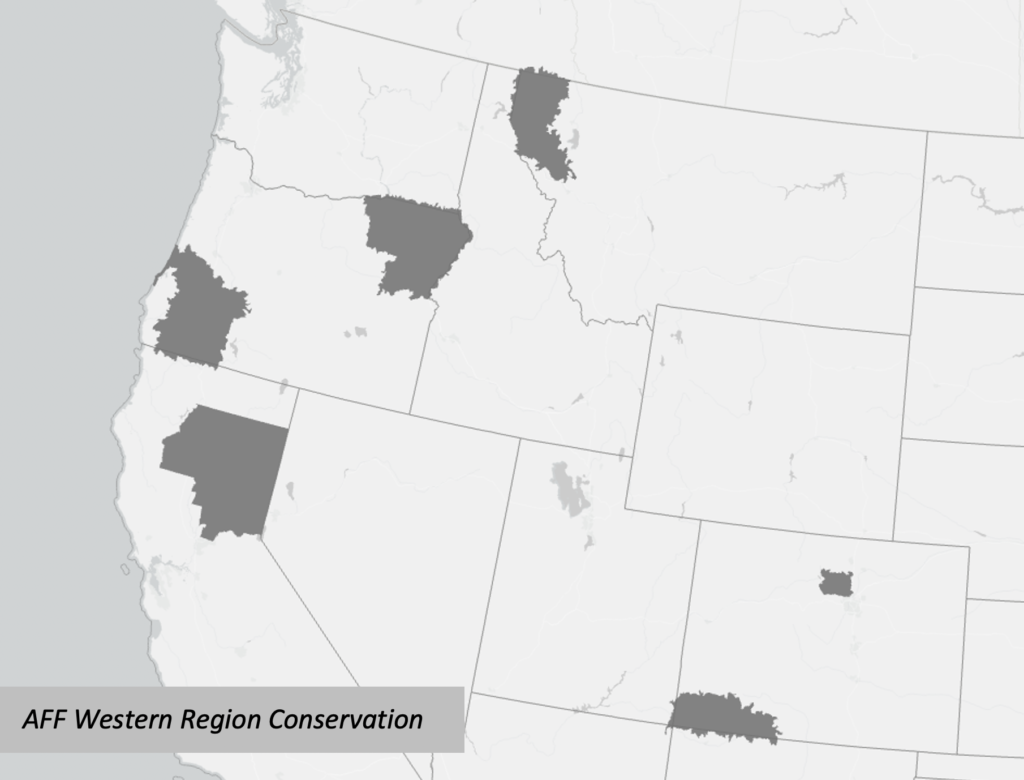
Reducing Wildfire Risks and Restoring Resilient Private, Family Forests in the West
Over the past several years, many parts of the West, especially California, have seen some of the most destructive wildfires in the state’s history, taking lives and endangering communities and ecosystems. Reducing wildfire risk is perceived as a public land issue, but in states like California, nearly three of every five acres at risk from fire in important watersheds are privately-owned. While landowners are eager to lower the risk of wildfire, both for their safety and for the greater good of their communities, many cannot. What prevents most from taking action is a lack of technical assistance and financial resources to get their forests back to health.
AFF is working with dozens of public and private sector partners across the West to tackle these issues and restore resilient private, family-owned forests. In addition to reducing wildfire risks, restoring these lands helps improve wildlife habitat, increase carbon storage, and protect critical water supplies.
Partners: Arbor Day Foundation, CAL FIRE Cascade Resource Consultants, Sierra Timber Services, North Valley Resource Management, Norton Forestry, Butte County Fire Safe Council, Butte County Resource Conservation District, NRCS CA, Bank of the West, California Tree Farm Program, Jefferson Resource Company, Peterson Consulting, Sierra Pacific Industries, Soper-Wheeler Company, Colorado State Forest Service, NRCS Colorado, Oregon Department of Forestry, Wallowa Resources, Oregon State University, Extension, NRCS Oregon, Montana Department of Natural Resources, NRCS Montana
For more information, please contact Memorie English.
Tapping Family Forests for Climate Mitigation while Improving Forest Resiliency
Less than one percent of existing forest carbon projects in carbon markets are on acreages between 20 and 1,000 acres — the size range of the majority of private, family-owned forests in the U.S. This means that most family-owned forests are not currently being tapped in efforts to tackle climate change. These owners can significantly contribute to climate mitigation by sequestering more carbon from their forests.
Without family forests, there’s also a limited amount of forest carbon credits available to companies seeking to reduce their emissions through natural climate solutions. Families and individuals own the largest portion – 36% – of all forests across America.
The Family Forest Carbon Program, a partnership of the American Forest Foundation and The Nature Conservancy is opening doors for family forests to participate in climate mitigation and produce real, additional, measurable, and verifiable carbon credits in the voluntary market. This program is specifically designed for small, individual, and family landowners, producing significant environmental, social, and economic co-benefits.
Your investment in the Family Forest Carbon Program will help AFF and TNC continue to grow this program, which is currently piloting in the Central Appalachian region.
Partners: The Nature Conservancy, Family Forest Impact Foundation, Amazon, PA Department of Conservation and Natural Resources, VF Corporation, 3M, Domtar, Vulcan Materials, International Paper, Richard King Mellon Foundation, JM Kaplan Fund, Doris Duke Charitable Foundation, U.S. Forest Service, Natural Resources Conservation Service
For more information, please contact Memorie English.
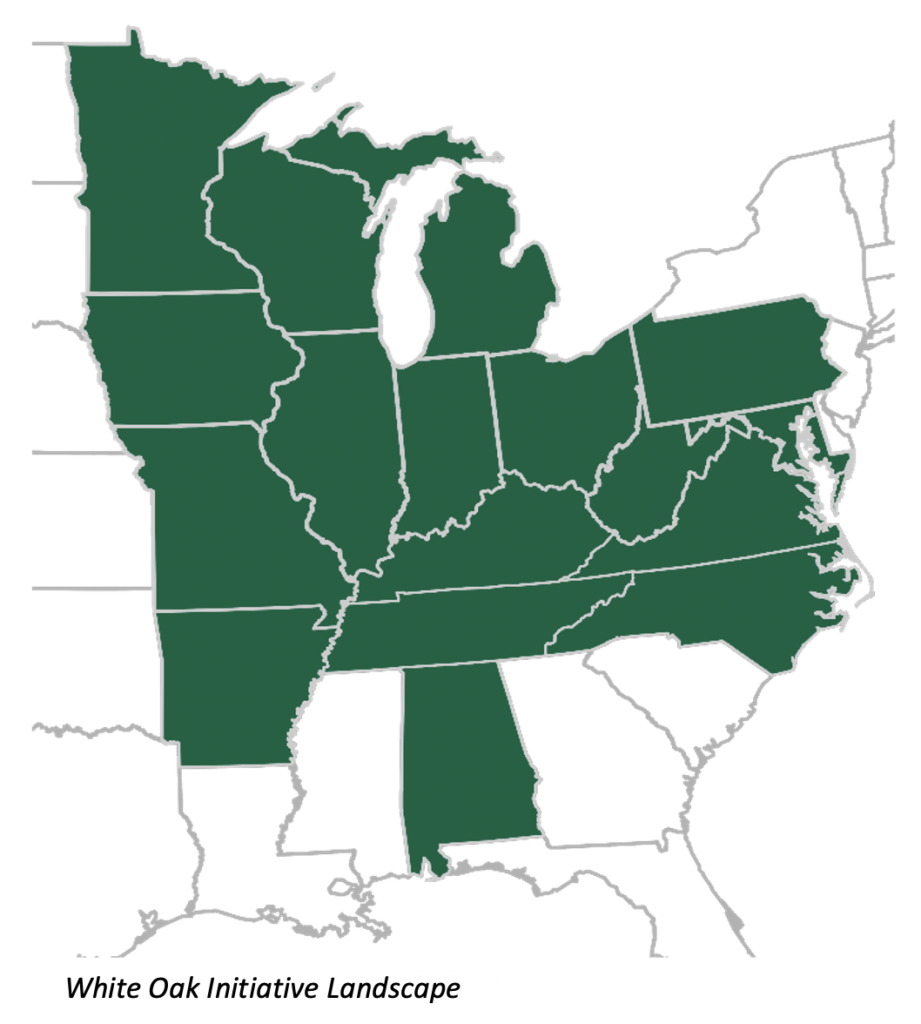
Small Landowners Nurturing the Next Generation of White Oak Forests
American white oak is a cornerstone species in the eastern U.S. It provides vital habitat and food for wildlife. It also plays an essential role in rural economies and supports various industries, including furniture and flooring. Roughly 75% of today’s white oak forests are mature or older, and seedlings and saplings are not present at the rate needed to sustain oak forests in the next 50 years. We need to think, plan, and act decades ahead if we want to avoid a crisis situation.
The Oak Sustainability and Habitat Program focuses on targeted forest management and habitat enhancement for wildlife species, with an emphasis on establishing the next generation of white oak forests. Your investment in this program will help AFF and its partners engage landowners in high priority landscapes to implement management practices that diversify age classes of white oak forests through regenerating and establishing young forests.
Partners: White Oak Initiative, University of Kentucky, The DendriFund, Brown-Forman, Kentucky Forest Industries Association, American Forest Foundation, Tennessee Forestry Association, Independent Stave Company, Forest Land Group, Missouri Department of Conservation, National Hardwood Lumber Association, Westrock, Appalachian Hardwood Manufacturers, Inc., Columbia Forest Products, NRCS, National Wild Turkey Federation, Independent Stave Company, Alabama Forestry Commission, Beam Suntory, USFS Region 8, Cumberland Springs Land Company, American Forests, Central Kentucky Forest Management, Sazerac
For more information, please contact Memorie English.
